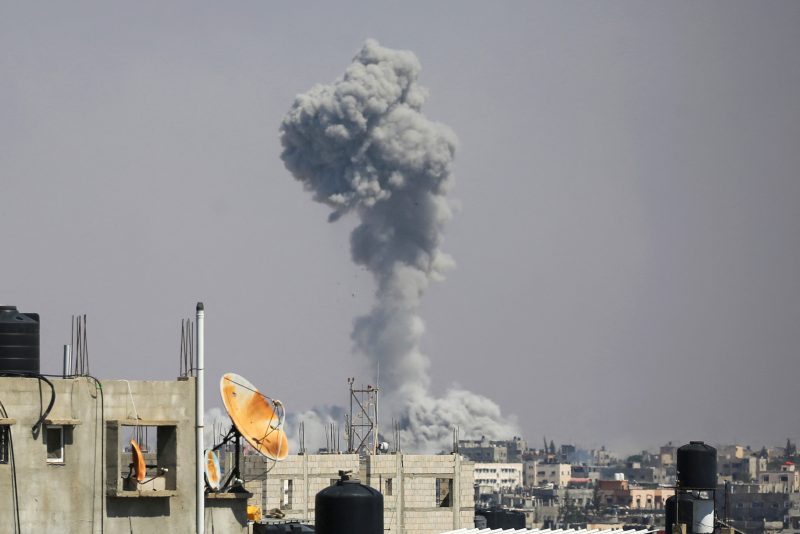The recent decision by the United States to pause the shipment of thousands of bombs to Israel amid the rift between Israel and the United Arab Emirates over the expected opening of Rafah port has sparked mixed reactions and raised questions about the implications of such a move. The decision to halt the arms transfer comes at a critical juncture when tensions in the Middle East are already running high.
The rift between Israel and the UAE over the Rafah port issue has highlighted the complex web of relationships and interests that underpin regional dynamics. The UAE’s decision to pursue a closer relationship with Israel has been met with backlash from traditional allies like the United States. The pause in arms shipments serves as a concrete manifestation of the diplomatic tensions playing out behind the scenes.
One of the key concerns surrounding the halting of arms shipments is the potential impact on Israel’s military capabilities. The bombs in question are crucial for Israel’s defense strategy, and any delay in their delivery could have strategic implications for the country’s security. This move by the United States raises questions about the extent to which allies can rely on each other in times of need and underscores the complexities of navigating regional rivalries and alliances.
The decision to pause the arms transfer also underscores the broader debate surrounding arms sales and their implications for regional stability. The Middle East is already a volatile region, and the influx of arms can further exacerbate existing conflicts and fuel tensions. By putting the arms shipment on hold, the United States is sending a signal about the need to carefully consider the consequences of arming allies in a region rife with political, religious, and sectarian divides.
Furthermore, the rift over the Rafah port issue highlights the shifting dynamics in the Middle East, with traditional alliances being tested and new partnerships emerging. The UAE’s growing proximity to Israel signals a recalibration of regional power dynamics and poses challenges for longstanding alliances in the region. The pause in arms shipments can be seen as a reflection of the complexities and nuances of the evolving geopolitical landscape in the Middle East.
In conclusion, the decision by the United States to pause the shipment of bombs to Israel amid the rift over the Rafah port issue raises important questions about the implications of arms sales, regional alliances, and the shifting dynamics in the Middle East. This move underscores the interconnected nature of regional politics and the delicate balancing act required to navigate complex geopolitical relationships. As tensions continue to simmer in the Middle East, decisions around arms transfers and allegiances will have far-reaching consequences for regional stability and security.

